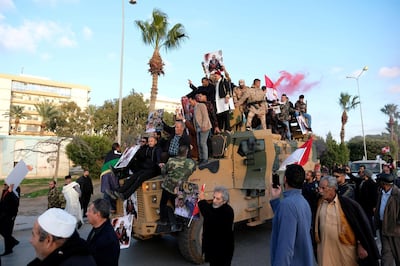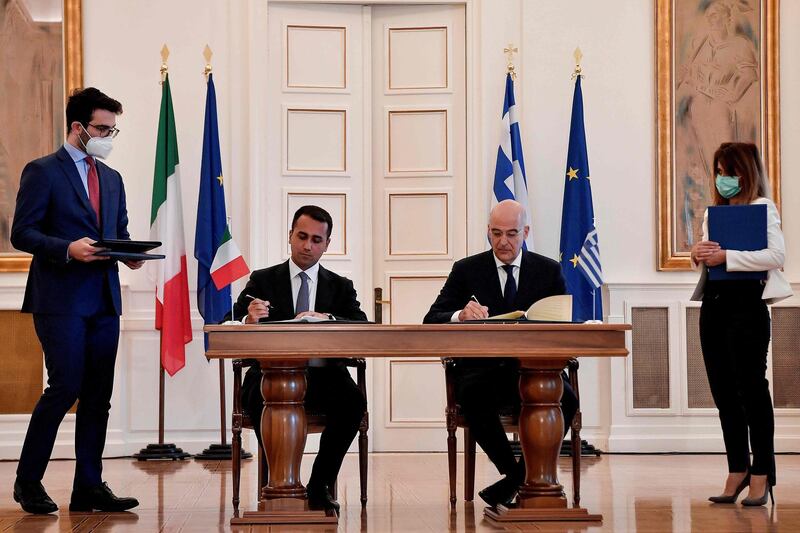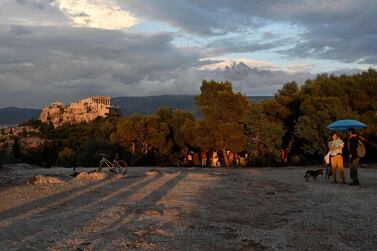Italy and Greece have signed a maritime border agreement defining their exclusive economic zones in the Mediterranean amid escalating tensions in the region over rights to natural resources.
Italian Foreign Minister Luigi Di Maio and Greek Foreign Minister Nikos Dendias signed the agreement at a meeting in Athens hailed by officials as “historic”.
The issue of Greece and Italy’s rights to resources in the Mediterranean was last agreed more than four decades ago.
“Today is a historic day. This is an important development, given that the previous agreement dates from 1977,” Mr Dendias said in a statement after the meeting.
“It remains our country’s firm pursuit to delimit the maritime zones with all of our neighbours, in the framework of international law,” he added.
The deal between the two countries comes on the heels of an agreement last November between the Government of National Accord (GNA) in Libya and Turkey, in which Ankara was granted access to maritime areas rich in natural resources in exchange for military assistance.

Greece, the UAE and regional powers have decried the 2019 deal as illegal.
Ankara’s intervention on the ground in Tripoli, supplying UAVs and thousands of fighters to GNA-aligned forces has tipped the balance of Libya’s internecine civil war in recent weeks.
Under attack for a year in Tripoli from forces loyal to the Libyan National Army (LNA) commander, Field Marshal Khalifa Haftar, since May the GNA has claimed a series of lightning victories in the west of the country.
The Greek foreign minister hit out at the Tripoli-Ankara deal in the eastern Mediterranean as “null and void” and condemned Turkish actions in Cyprus, Syria and Libya.
The civil war in Libya has increasingly intersected with the long-standing dispute between Turkey and Greece over the island of Cyprus and wider maritime borders. On Friday, Turkey announced its plans to begin drilling in the eastern Mediterranean before the end of the year.
Mr Dendias denounced the Turkish Petroleum Corporation’s applications as “illegal” once again.
Following the meeting between the Greek and Italian foreign ministers, the European Union renewed its calls on Tuesday for a ceasefire in Libya.
Egypt announced on Saturday a blueprint for a political settlement to the conflict in Libya and asked the UN to invite warring parties to Geneva to negotiate an agreement on implementing the plan. The GNA and Turkey have rejected the Cairo peace plan.
“In the aftermath of the constructive commitments to halt fighting, resume dialogue and reach a ceasefire within the framework of the 5+5 joint military committee, taken in Cairo on 6 June … [we] urge all Libyan and International parties to effectively and immediately stop all military operations," the statement from EU foreign policy chief Josep Borrell and Foreign Ministers Jean-Yves Le Drian of France, Heiko Maas of Germany and Mr Di Maio of Italy read.
At the start of this year, world powers met in Berlin at an international conference on Libya in a bid to extend a possible ceasefire. Fighting in the North African nation has intensified in the intervening months, however.







